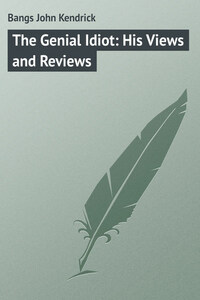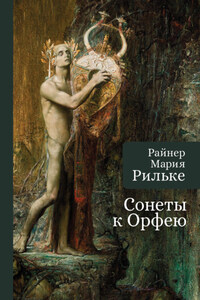I
HE DISCUSSES MAXIMS AND PROVERBS
”GOOD!” cried the Idiot, from behind the voluminous folds of the magazine section of his Sunday newspaper. “Here’s a man after my own heart. Professor Duff, of Glasgow University, has come out with a public statement that the maxims and proverbs of our forefathers are largely hocus-pocus and buncombe. I’ve always maintained that myself from the moment I had my first copy-book lesson in which I had to scrawl the line, ‘It’s a long lane that has no turning,’ twenty-four times. And then that other absurd statement, ‘A stitch in the side is worth two in the hand’ – or something like it – I forget just how it goes – what Tommy-rot that is.”
“Well, I don’t know about that, Mr. Idiot,” said Mr. Whitechoker, tapping his fingers together reflectively. “Certain great moral principles are instilled into the minds of the young by the old proverbs and maxims that remain with them forever, and become a potent influence in the formation of character.”
“I should like to agree with you, but I can’t,” said the Idiot. “I don’t believe anything that is noble in the way of character was ever fostered by such a statement as that it’s a long lane that has no turning. In the first place, it isn’t necessarily true. I know a lane on my grandfather’s farm that led from the hen-coop to the barn. There wasn’t a turn nor a twist in it, and I know by actual measurement that it wasn’t sixty feet long. You’ve got just as much right to say to a boy that it’s a long nose that has no twisting, or a long leg that has no pulling, or a long courtship that has no kissing. There’s infinitely more truth in those last two than in the original model. The leg that’s never pulled doesn’t go short in a stringent financial market, and a courtship without a kiss, even if it lasted only five minutes, would be too long for any self-respecting lover.”
“I never thought of it in that way,” said Mr. Whitechoker. “Perhaps, after all, the idea is ill-expressed in the original.”
“Perfectly correct,” said the Idiot. “But even then, what? Suppose they had put the thing right in the beginning and said ‘it’s a long lane that has no ending.’ What’s the use of putting a thing like that in a copy-book? A boy who didn’t know that without being told ought to be spanked and put to bed. Why not tell him it’s a long well that has no bottom, or a long dog that has no wagging, or a long railroad that has no terminal facilities?”
“Oh, well,” interposed the Bibliomaniac, “what’s the use of being captious? Out of a billion and a half wise saws you pick out one to jump on. Because one is weak, all the rest must come down with a crash.”
“There are plenty of others, and the way they refute one another is to me a constant source of delight,” said the Idiot. “There’s ‘Procrastination is the thief of time,’ for instance. That’s a clear injunction to youth to get up and hustle, and he starts in with all the impulsiveness of youth, and the first thing he knows – bang! he runs slap into ‘Look before you leap,’ or ‘Second thoughts are best.’ That last is what Samuel Johnson would have called a beaut. What superior claims the second thought has over the first or the seventy-seventh thought, that it should become axiomatic, I vow I can’t see. If it’s morality you’re after I am dead against the teachings of that proverb. The second thought is the open door to duplicity when it comes to a question of morals. You ask a small boy, who has been in swimming when he ought to have been at Sunday-school, why his shirt is wet. His first thought is naturally to reply along the line of fact and say, ‘Why, because it fell into the pond.’ But second thought comes along with visions of hard spanking and a supperless bed in store for him, and suggests the idea that ‘There was a leak in the Sunday-school roof right over the place where I was sitting,’ or, ‘I sat down on the teacher’s glass of water.’ That’s the sort of thing second thought does in the matter of morals.
“I admit, of course, that there are times when second thoughts are better than first ones – for instance, if your first thought is to name the baby Jimmie and Jimmie turns out to be a girl, it is better to obey your second thought and call her Gladys or Samantha – but it is not always so, and I object to the nerve of the broad, general statement that it is so. Sometimes fifth thoughts are best. In science I guess you’ll find that the man who thinks the seven hundred and ninety-seventh thought along certain lines has got the last and best end of it. And so it goes – out of the infinitesimal number of numbers, every mother’s son of ’em may at the psychological moment have a claim to the supremacy, but your self-sufficient old proverb-maker falls back behind the impenetrable wall of his own conceit, and announces that because he has nothing but second-hand thoughts, therefore the second thought is best, and we, like a flock of sheep, follow this leader, and go blatting that sentiment down through the ages as if it were proved beyond peradventure by the sum total of human experience.”














